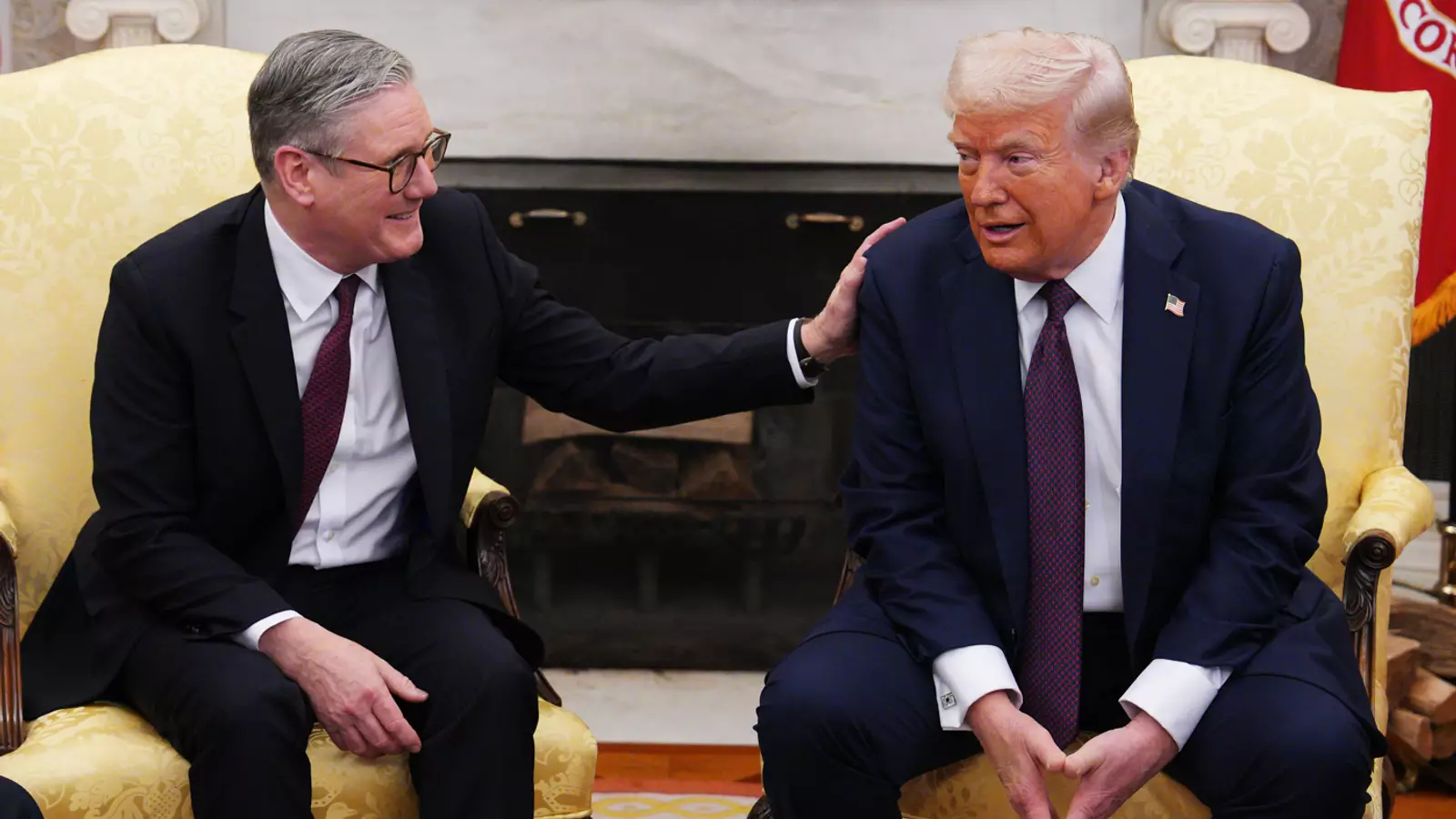Recent declarations by Sir Keir Starmer surrounding the anticipated trade talks between the UK and the US paint a troubling picture. With tariffs looming under the administration of Donald Trump, the situation has the potential to spiral into a steep economic downturn. Starmer, cautioning against “knee-jerk” reactions, faced the harsh reality that the likelihood of new tariffs is almost certain. This stark acknowledgment underlines the fragility of the relationship between two nations that once basked in the glow of their historical alliance. There’s nothing reassuring about the prospect of the UK being on the receiving end of punitive trade measures, particularly as they broadly threaten not only key sectors such as automobile manufacturing but also the broader economy.
The Trade Deal Mirage
Starmer’s assertion that discussions for an economic deal are “well advanced” brings both hope and skepticism. Rapid discussions that typically stretch over months or even years might be painted as progress, yet they could be the equivalent of a mirage in a desert of economic fear. The trade negotiations are veiled in uncertainty, and the notion that a deal could be struck before the tariffs land feels optimistic at best, foolhardy at worst. This sentiment is compounded by the increasingly aggressive stance of the Trump administration, which regards tariffs as a tool to rectify perceived trade imbalances. The talk of being “well advanced” in negotiations seems to overshadow the stark realities—the impending “liberation day” as coined by Trump may as well be labeled as “disaster day” for many industries.
Economic Consequences and Potential Retaliation
The very fabric of the UK economy hangs in the balance, with predictions from the Office for Budget Responsibility (OBR) forecasting a potential 1% reduction in the British economy due to the tariffs. The implications of such a downturn are dire; they would not only necessitate tax hikes but could culminate in a broader economic malaise just when recovery from previous crises seemed within grasp. The announcements of tariffs coinciding with the promise of “liberation” smack of political theater—grand gestures that prioritize national pride over economic prudence.
While the UK government’s calm-headed approach is laudable, there is an undercurrent of frustration. Ministers have gracefully danced around the idea of retaliation while suggesting patience in negotiations. However, it is entirely reasonable for the UK to consider reciprocal measures should their economic interests be jeopardized. Yet, retaliatory tariffs can inadvertently pull both nations deeper into a trade war—a scenario no one truly desires but one that feels increasingly inevitable.
Global Market Reactions: A Wavering Confidence
The disarray hasn’t gone unnoticed; global markets reflect the uncertainty that tariffs bring. A mixture of flat and downward trajectories for key indices indicates a collective sigh of apprehension among investors. Notably, the FTSE 100 experienced a notable decline amid the impending tariff storm, hinting at a lack of confidence in the UK’s economic resilience. The US markets experienced volatility, but such fluctuations provide little comfort in the face of potential long-term economic damage. Financial ecosystems do not thrive on uncertainty, and the cloud of tariffs is casting a long shadow over both sides of the Atlantic.
The specter of escalating tariffs as Trump rallies his supporters might court domestic approval, but it disregards the very real fallout that will ensue. The president reframing his intentions as “doing this in the best interest of the American worker” belies the broader implications for international relationships, especially with allies like the UK. This narrow-minded approach to trade policy could plunge two historically bonded countries into a defensive stance, creating economic battlegrounds instead of cooperative pathways.
A Path Forward: The Liberal Sentiment
In the throes of this looming trade crisis, it is essential that both nations adopt a diplomatic and collaborative approach. Strong advocacy for open dialogue and reasoned negotiation should define how the UK responds to these threats. It would be politically opportunistic to engage in tit-for-tat tariff measures; rather, the primary focus should rest on partnerships that reinforce mutual benefits and reduce adversarial posturing. As a center-wing liberal, the belief that markets thrive on cooperation rather than conflict is paramount. Crafting a unified front against unilateral tariff measures may, in fact, serve to strengthen trade ties not only between the UK and US but also incorporate the broader international community in steering global economic recovery. The stakes may be high, but taking the moral high ground with an emphasis on cooperation and empathy will be the most significant trade of all.


Leave a Reply